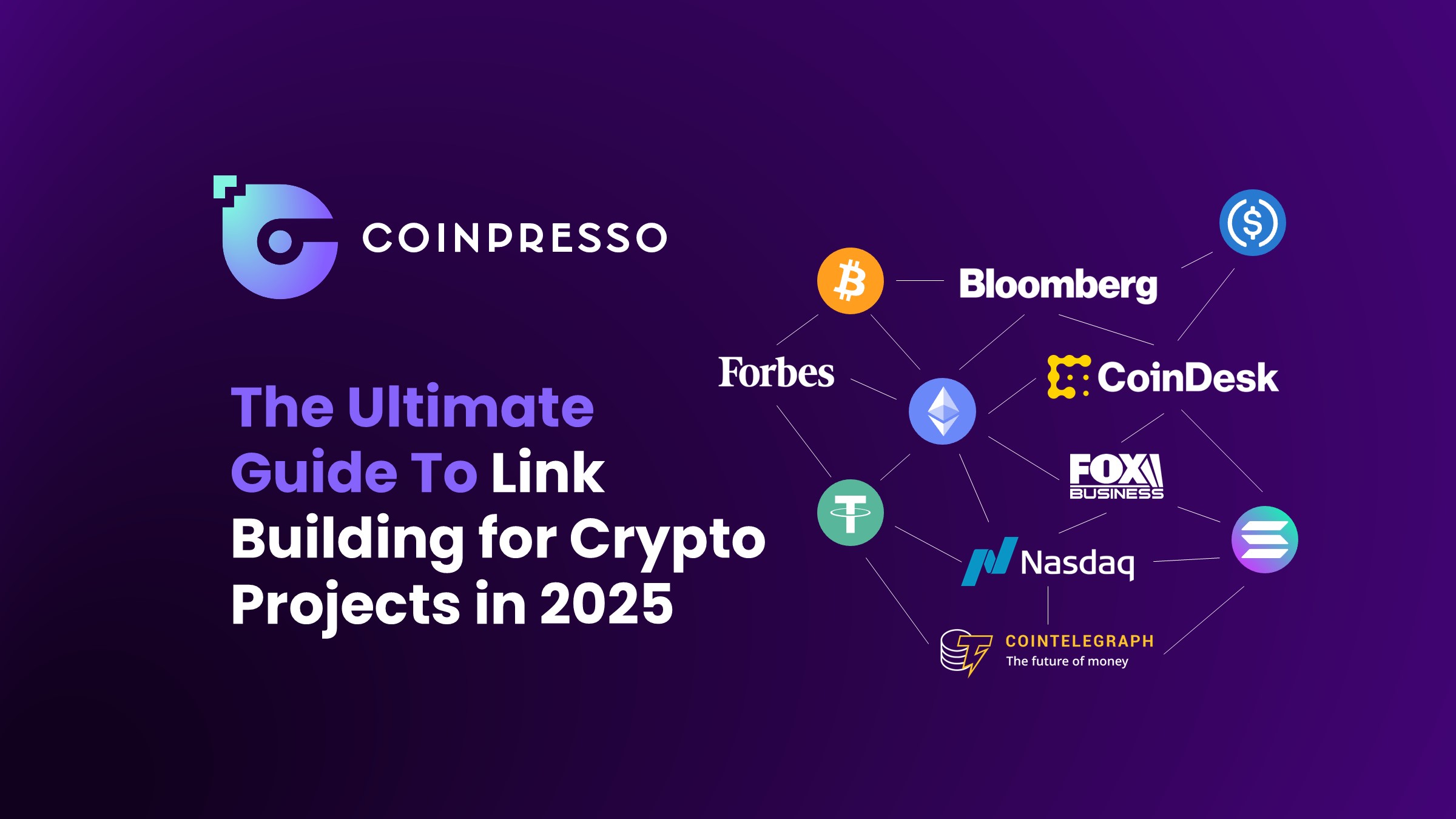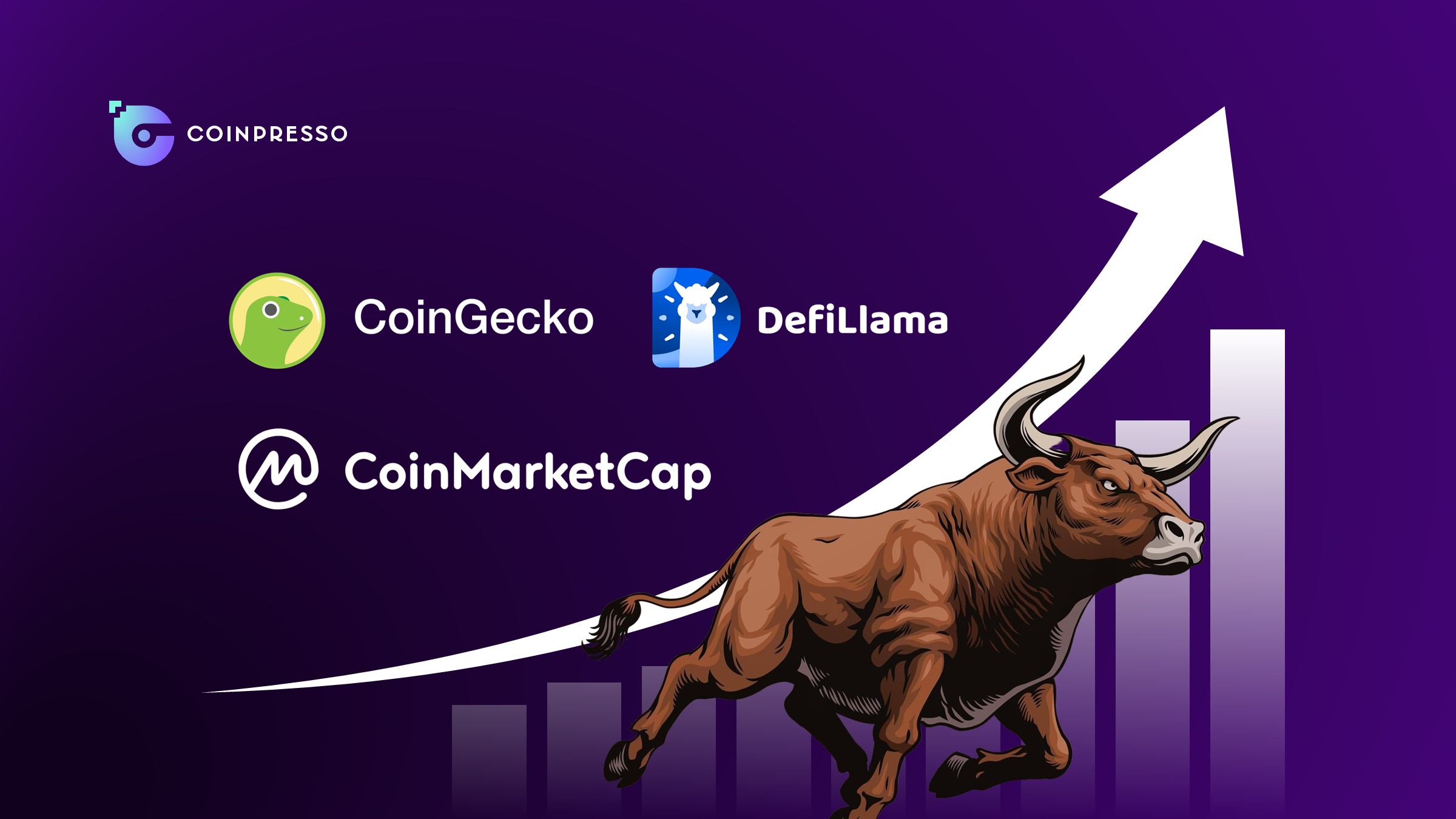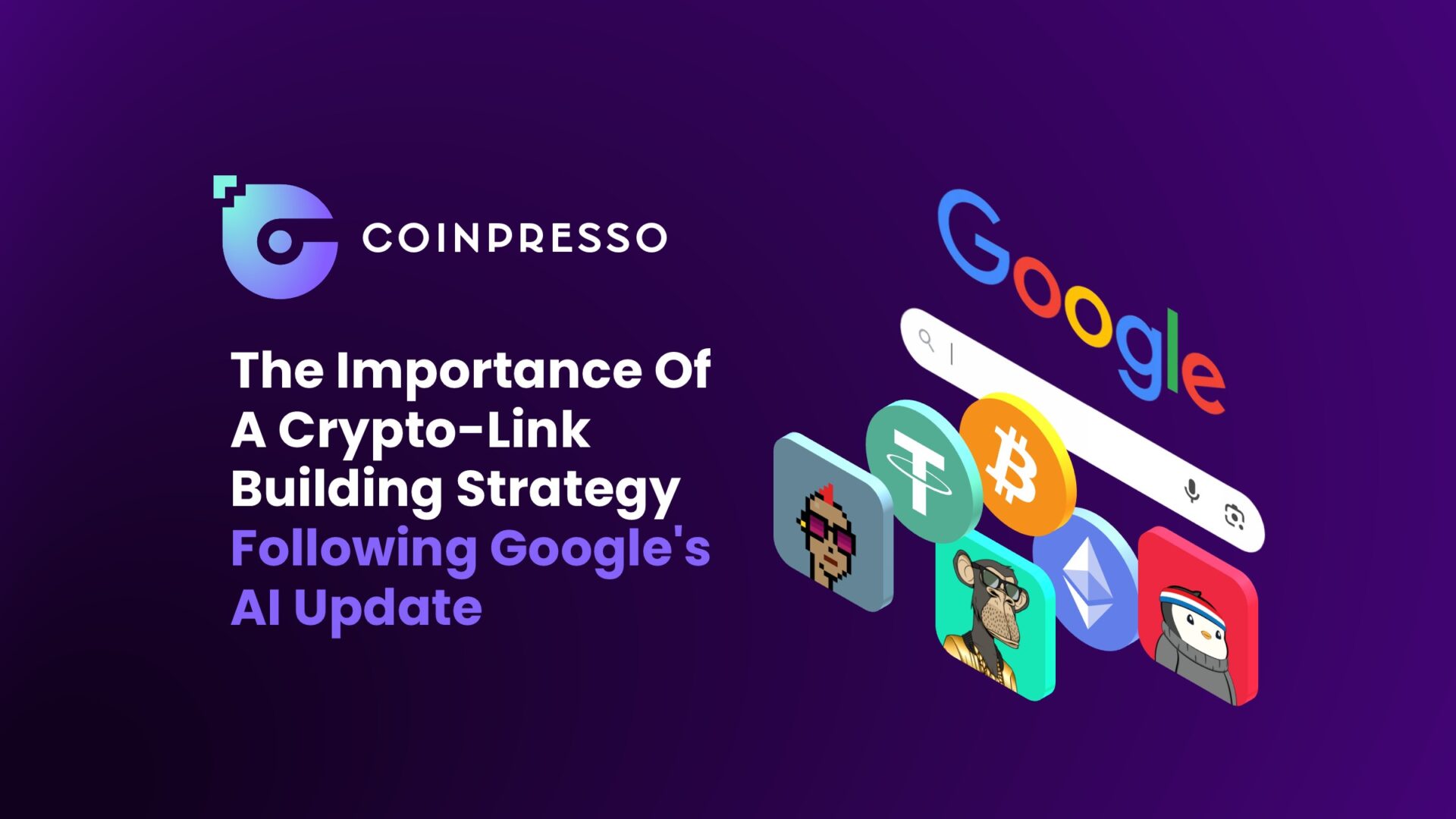
Link building remains a pivotal aspect of Web3 content marketing. It allows projects to build their authority, grow traffic, and gain exposure to engaged, crypto-oriented communities. A successful crypto link-building strategy requires support from an experienced team that includes expert marketers, crypto copywriting teams, and graphic designers.
This strategy is crucial for gaining visibility and authority in 2025. In an increasingly busy crypto market, strong backlinks signal credibility to search engines and potential investors alike, helping projects stand out.
Crypto link building can be a huge support for crypto presales, Layer-1s, and DeFi protocols. However, it's expensive and requires contacts in the Web3 and financial industry, which is why most leading projects outsource link building to agencies with a proven track record. This ensures access to high-quality placements that genuinely drive results.
Understanding Link Building in the Web3 Space
Link building in Web3 has a certain level of nuance compared to standard SEO link-building practices. For this reason, it's important for projects to collaborate with teams that have access to leading cryptocurrency news sites and writers who live and breathe blockchain.
Link building for crypto projects differs significantly from traditional industries due to the unique characteristics of the Web3 space. The audience is highly specialized and often skeptical, requiring content that demonstrates genuine understanding and adds real value.
Furthermore, the rapid pace of innovation means that content and link targets can become outdated quickly, demanding constant adaptation and deep industry knowledge. Unlike traditional sectors, a crypto project might seek links from DeFi aggregators, NFT marketplaces, or blockchain explorers, not just general news sites.
Google's stance on crypto and Web3 content has evolved, reflecting the market's maturity and regulatory landscape. While direct advertising might face restrictions, high-quality, organic links remain a powerful signal of credibility. Emphasizing trust signals, E-E-A-T (Experience, Expertise, Authoritativeness, Trustworthiness), and strong brand association in the crypto world is paramount.
Google increasingly prioritizes content from verifiable experts and reputable sources, making it crucial for link-building efforts to align with these principles to ensure long-term visibility and prevent algorithmic penalties.
High-Impact Link Building Strategies for Crypto Projects
High-impact link building for crypto projects involves a blend of advanced tactics. This includes securing placements on niche crypto publications, leveraging authority directories, employing parasite SEO on strong domains, and implementing crypto press release distribution services.
Niche Editorial Backlinks
One of the main aims of a backlink strategy is to gain placements in the most respected and authoritative news outlets. These top publications are extremely difficult to access, but some agencies are able to secure placements through contacts with editors and journalists.
Strategies for getting featured on top crypto publications like CoinTelegraph and Decrypt involve crafting highly newsworthy stories or offering unique insights. This means pitching exclusive research, expert commentary on market trends, or compelling use cases for a project's technology. Content must be tailored to the publication's specific audience and editorial standards, providing genuine value rather than just a promotional piece.
A hybrid approach combining SEO and PR can deliver maximum impact. This involves creating SEO-optimized content that is also newsworthy enough for PR outreach. For example, a project could publish an in-depth report on a specific DeFi sector (SEO focus) and then leverage its unique findings for a press release pitched to journalists (PR focus).
Authority Directory Submissions
Beyond editorial mentions, submitting to and getting listed on authoritative crypto directories and aggregators forms a crucial part of a robust link-building strategy. Platforms like CoinMarketCap and CoinGecko are highly trafficked portals for crypto users seeking information on various projects. A presence on these sites provides direct referral traffic and signals legitimacy to both users and search engines, offering valuable contextual backlinks.
Specialized DeFi trackers and aggregators like DeFiLlama also serve as powerful backlink sources for projects operating in that sector. Getting a DeFi protocol listed on platforms that track TVL (Total Value Locked), yield farming opportunities, or lending protocols means placing a project directly within the workflows of highly engaged and relevant users
For projects aiming for widespread market recognition, actively pursuing listings and ensuring proper backlink inclusion on these high-authority directories is non-negotiable. They act as trust anchors, providing essential signals to Google about a project's legitimacy and relevance, directly contributing to its overall SEO strength and organic visibility in the competitive crypto space.

Parasite SEO on Authoritative Domains
Parasite SEO can play a central role in a link-building strategy by combining standard crypto SEO strategies based on keywords and placements, along with a parasite traffic growth approach. This method leverages the established power of highly credible websites to gain rapid visibility for crypto projects.
The strategy involves publishing content on high-authority third-party platforms. These sites possess immense domain authority in Google's eyes, allowing content published on them to rank quickly for competitive keywords. This can provide a significant boost in early visibility for new tokens or projects, essentially "piggybacking" on the host site's reputation.
However, this strategy also requires expert guidance to avoid infringing on very specific content rules set out by Google. Without careful adherence to guidelines regarding content quality, disclosures, and link practices, projects risk triggering manual penalties or algorithmic restrictions. This could lead to content being de-indexed or even the host platform facing issues, resulting in wasted spend and damaged reputation.
Link Schemes to Avoid And Why They Hurt Crypto SEO
It may be tempting to look into link schemes that offer masses of backlinks from seemingly high-quality outlets at a suspiciously good price. It isn't. These services are not long-term solutions and will more than likely hurt the underlying crypto project. Such tactics are designed to manipulate search rankings, which directly violates Google's guidelines.
The high risks associated with Private Blog Networks (PBNs) and link farms are a prime example of detrimental practices. PBNs are networks of websites created solely to build links to other sites, artificially boosting their authority
Similarly, link farms are websites designed exclusively to generate backlinks. Google's algorithms are increasingly sophisticated at detecting these artificial networks, leading to severe penalization for any project found using them, including significant drops in search rankings or even complete de-indexing.
Furthermore, acquiring irrelevant niche backlinks can harm SEO rather than help. A crypto project receiving links from a gardening blog, for instance, signals irrelevance to search engines. Quality link building focuses on acquiring links from authoritative sources within the same industry or related fields. Links from sites unrelated to crypto do not pass genuine authority and can actually trigger spam flags, negatively impacting the project's online visibility and authority.
Tools & Platforms to Monitor Your Crypto Backlink Profile
It's important to work with an agency that clearly monitors the impact of the link-building strategy. Only by gathering relevant data and making adjustments can strategies develop and improve over time.
Monitoring for toxic links is a continuous process. Agencies regularly audit the backlink profile to identify low-quality or spammy links that could harm rankings. If such links are found, they attempt to have them removed by contacting the linking website. If removal isn't possible, a disavow file is submitted to Google Search Console, instructing Google to ignore those specific backlinks when evaluating the site's authority. This proactive management prevents potential penalties and maintains a healthy link profile.
Essential tools for backlink analysis include:
- Ahrefs: Provides a comprehensive database of backlinks, allowing for detailed analysis of referring domains, anchor text, and competitor link profiles.
- SEMrush: Offers robust backlink auditing features, including a toxicity score to identify potentially harmful links and simplify the disavow process.
- Moz: Known for its Domain Authority and Page Authority metrics, helping assess the quality and influence of referring domains.
Coinpresso’s Approach to Link Building in Crypto
The Coinpresso link-building strategy focuses on quality links, a data-based approach, and transparency. The process includes a multifaceted approach that blends link building with a broader crypto press release distribution and SEO strategy, which maximizes the impact of marketing spend. This commitment to quality over quantity ensures that every acquired link genuinely contributes to a project's authority and visibility.



































